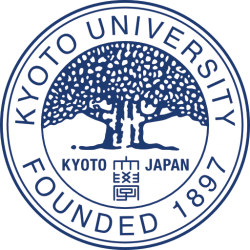Teacher: Björn-Ole KAMM
Course Code: JK33001
The focus of this practice-oriented and interactive seminar lies on theoretical concepts and analytical techniques useful to engage transculturality in the cross-disciplinary research field of game studies.
Game analysis, game studies, or ludography exemplify different names and approaches to the growing field of research on games and gaming. Studying the meaning of playing digital and analog games and their complexity as (trans-) cultural artifacts asks for combining new and old research tools from the humanities and social sciences — and more because gaming relates to many spheres of human activity. This practice-oriented and interactive seminar focuses on theoretical concepts and practical analytical techniques to engage transculturality in the cross-disciplinary research field of games.
The course engages questions of what makes a game, considering classics, such as Huizinga’s Homo Ludens and the often-misunderstood tool of the “magic circle” of play, taking cues from Wittgenstein’s family resemblance, and exploring the dynamic discourse of game design with Salen and Zimmerman’s Rules of Play. Primarily, we will deal with approaches to analyzing games as complex media artifacts that exist in being played. Thus, the course offers concrete step-by-step guidelines for researching the context, formal, narrative, and visual elements, and the interactive and immersive aspects of games. In this, we will also pay attention to community-building moments and border-crossing flows, questions of representation and appropriation.
The theoretical input and practical guidelines form the basis for practical exercises in applying these methodologies to concrete cases of the student’s choosing.
The course primarily addresses JDTS and MATS students of the VMC focus in their first semester but also welcomes students in their second year who are about to define their MA thesis topic. The course requires students to actively participate, do regular written homework and occasionally work in teams.
Course Information
Module: Introduction to Transcultural Studies
CATS Requirements: BA 3rd. year or above
Link to course material on PandA.
Day/Period: Wed/3
Location: 9演/Sem. 9
Credits: 2
Course Goals
The course seeks to establish an understanding of theories of transculturality, interactivity, immersion, and user agency and various angles of valuable methodology for the study of games and gaming. Building on key literature of game studies since Aarseth’s “Playing Research” and a Wittgensteinian approach to cultural practices, students will acquire knowledge and skills in developing a matching research design for studies sensitive to the interactive nature of games, and the role of actors and materials alike.
In individual and group projects, students will apply key methodologies to contemporary case studies, such as qualitative visual and textual analysis of videogames (using QDA-software, such as MaxQDA), cyber-ethnography of gamers, or the analysis of the physical embodiment of fictional characters in live-action gaming. The course aims to assist students in taking the leap to a position of knowledge production and thus focuses on practical exercises and training in academic presentation skills.
Course Schedule and Evaluation
For a detailed course schedule, please visit KULASIS or the PandA platform.
The course involves weekly reading and writing assignments as well as fieldwork (students will collect and analyze qualitative data as part of a shared research project). The students will present their project results via posters at the end of the course.


